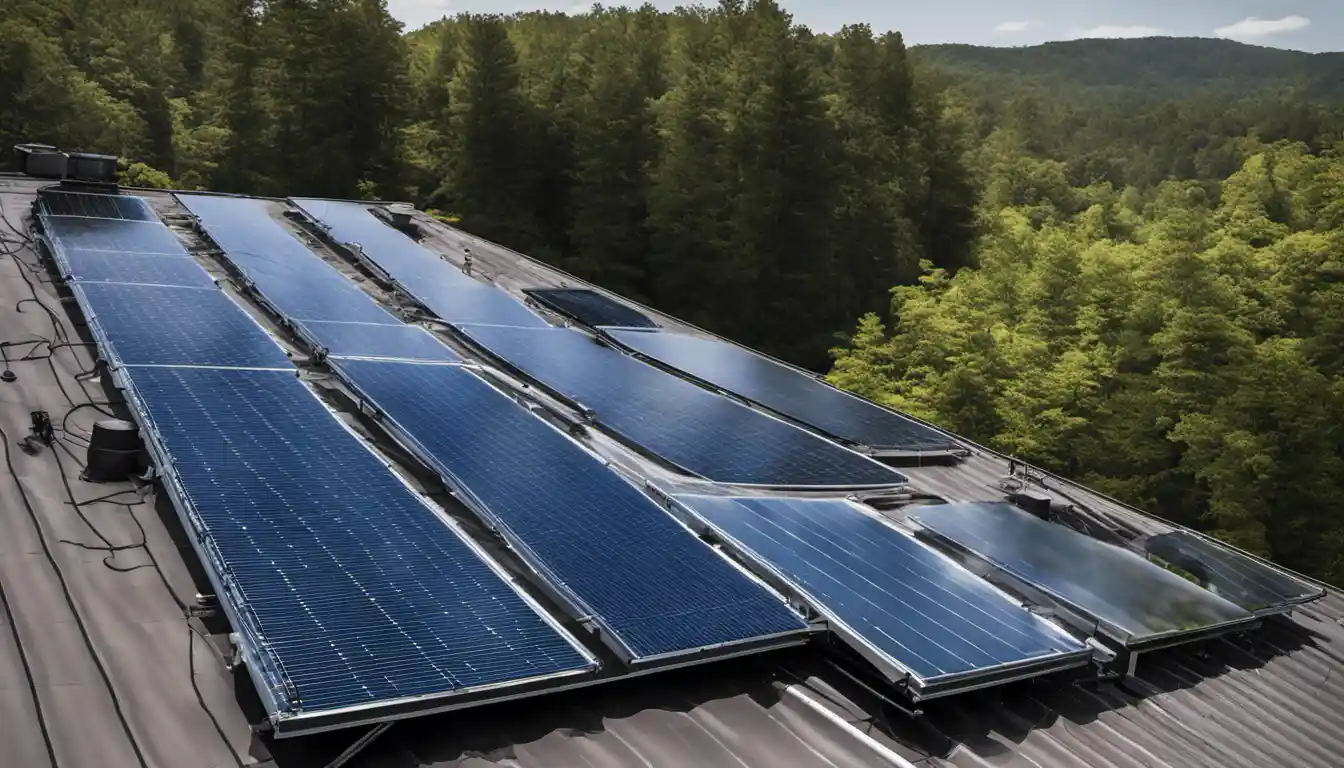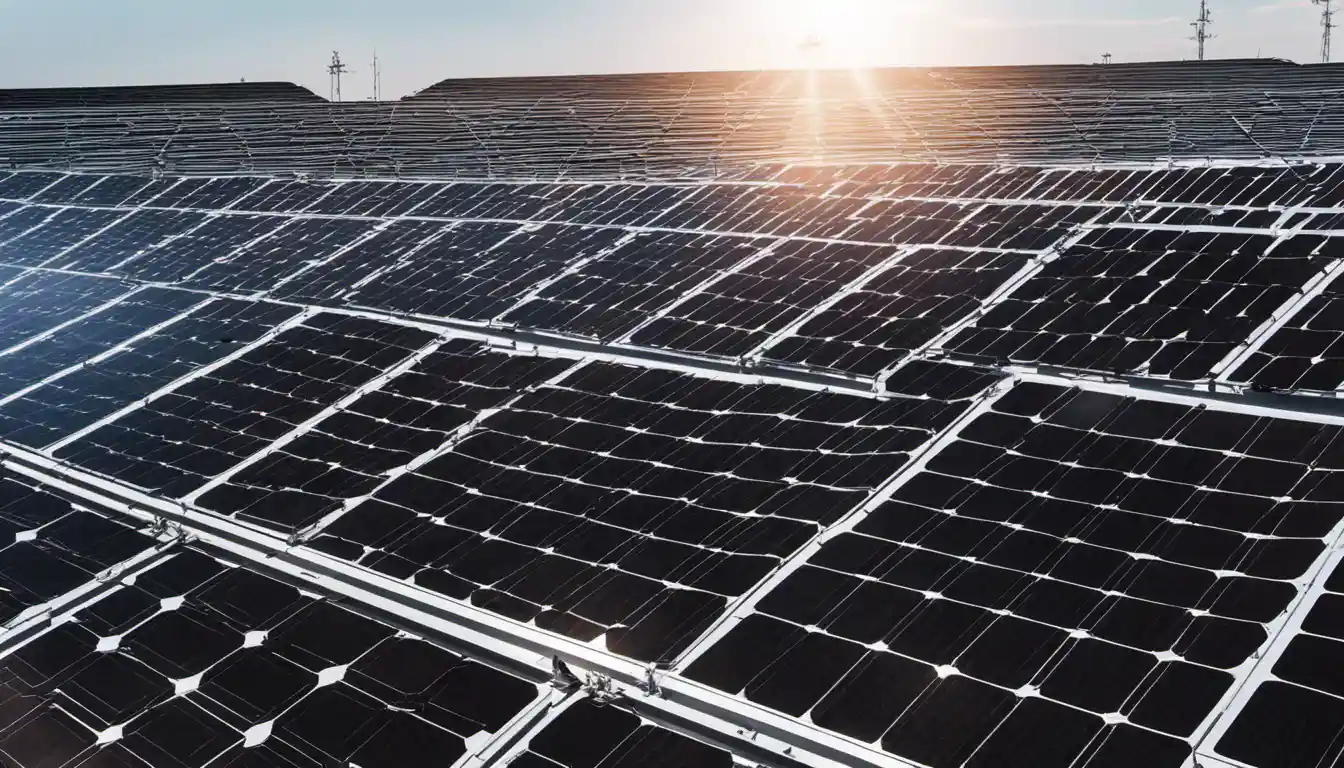Introduction to Solar Water Heating
Solar water heating is a system that uses solar energy to heat water. It typically involves solar collectors that capture and convert sunlight into heat, and then a system to transfer this heat into water. This sustainable solution can be used in both residential and commercial buildings to cut down on energy costs and reduce environmental impact.
The concept of harnessing the sun’s energy isn’t a new phenomenon. In fact, pioneers of solar water heating systems can be traced back to the Mediterranean civilizations, where they utilized the sun to keep their thermal baths warm. In Asia, particularly in Japan, ‘onsens’ or hot spring baths paved the way for the first solar water heaters.
Design Requirements
As an experienced solar energy advisor, I would recommend considering two crucial factors to ensure the durability of your solar water heating system – freeze and overheat protection. Depending upon your region’s climate, you might need freeze protection to prevent water in the collectors from freezing in harsh winters. On the other hand, overheat protection regulates the system to avoid excessive temperatures that could damage the components.
See also: How Long Do Solar Hot Water Systems Last? A Comprehensive Guide
How Solar Water Heating Works
Solar water heating operates on a fairly simple mechanism. The system absorbs sunlight through the solar collector, subsequently heating the water or a heat-transfer fluid. This heat is then transferred to your water supply.
There are two primary heat transfer methods: Direct and Indirect. As you might guess, direct transfer systems heat the water directly in the solar collector, while indirect systems use a heat-transfer fluid, which is then used to heat the water supply. Furthermore, the water can be propelled using either active propulsion, which uses pumps and controllers, or passive propulsion where natural convection principles are employed.
See also: Can You Run a Water Heater on Solar Power? Discover the Possibilities!
Types of Solar Water Heating Systems

There are several types and models of solar water heating systems available on the market. Here’s a quick rundown of the three main types:
- Passive Direct Systems or integral collector-storage (ICS) systems, lets water flow freely using convection.
- Active Indirect Systems, employs pumps and heat exchangers to transport the collected heat.
- Do-it-yourself (DIY) Systems, which you can construct at home using inexpensive materials, for the more hands-on households.
See also: Can You Run a Tankless Water Heater on Solar? Discover the Possibilities!
Comparison of Different Solar Water Heating Systems
When weighing your options, it’s crucial to take note of each system’s complexities and scope. For instance, Active Indirect Systems require more components and mechanisms but they are typically more efficient. On the other hand, Passive Direct Systems are simpler to install but may have limitations in colder climates.
See also: Pros and Cons of Solar Water Heating: A Comprehensive Analysis for Homeowners
Key Components of Solar Water Heating Systems
Just as in any complex system, there are key components in solar water heating systems that make the magic happen:
- The Collector: This is the most crucial part of the system. Flat Plate Solar Collectors and Evacuated Tube Collectors are two popular options.
- The Pump: The pump typically comes into play in active systems. It could either be a PV Pump powered by photovoltaic panels, or a Bubble Pump which uses heat directly from the collector.
- The Controller: Guides the pump to ensure that heat transfer is optimized.
- The Tank: An insulated tank stores the hot water in the system.
Application of Solar Water Heating

You might be wondering, “where can I use a solar water heater?” Your imagination is the limit. Aside from the typical bathing and dishwashing needs, it can also be incorporated into radiant floor heating or even heating your cherished swimming pool.
See also: Best Solar Water Heaters: A Comprehensive Guide for 2022
Energy Production and Costs
When we ask ‘what is solar water heating’, it’s also important to consider how much energy it produces and what it might cost. The amount of energy produced largely depends on the amount of sunlight your location receives. With the right setup, you can drastically reduce your reliance on grid electricity for water heating.
Cost-wise, solar water heating systems are a long-term investment. The upfront costs can be substantial, but it is important to consider the subsequent savings on energy bills. Furthermore, several regions offer incentivizing subsidies to lessen the financial burden. To get a better understanding, you can explore more on how much does solar water heating cost here.
See also: How Do Solar Water Heaters Work? Comprehensive Guide to Solar Heating Systems
Environmental Impact
Environmental stewardship is one of the core attractions of solar water heating. Using renewable energy sources tremendously cuts down your carbon footprint. A life-cycle energy assessment would showcase just how considerably lower the environmental impact of solar water heating is compared to conventional heating methods.
See also: How to Make Homemade Solar Water Heater: A Step-by-Step Guide
System Specification and Installation

Deciding on the right specification requires some expertise. This involves determining the right collector size relative to your hot water requirements and energy efficiency of the site. As for the installation process, while DIY systems are a feasible choice, a certified installer might be the best bet for ensuring the safety and optimization of your system.
See also: Solar Water Heater Maintenance: A Step-by-Step Guide to Extend Your System’s Lifespan
Regulatory Standards
Solar water heating systems don’t just have to be energy efficient, they also have to meet certain safety and quality standards. These regulations vary by geography. Europe, for example, complies with the Solar Keymark standard. The United States follows the Solar Rating and Certification Corporation’s (SRCC) protocols. Canada and Australia also have their specific benchmarks.
Worldwide Use of Solar Water Heating
Solar water heaters have now found their place in the sun (pun intended), all over the world. Europe, particularly, has been a frontrunner in adopting these eco-friendly systems. However, markets are expanding globally as more people understand the power of harnessing the sun for their heating needs.
So, what is a solar water heater you ask? Consider it as your personalized harnessing tool to tap into the inexhaustible energy of the sun: a perfect amalgamation of technology and nature. They not only provide an efficient way to heat water but also significantly reduce the energy footprint, making it a beneficial investment for both your wallet and the environment. Why wait? It’s time to let the sun shine on your rooftops! And if you are undecided about the model to choose, you can find the best options for your needs by checking out our top picks for solar showers. Make sure you catch the sun today!



